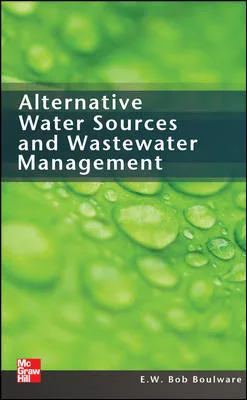ICC, NOWRA partner for clean water on World Water Day
Organizations seek opportunities to make safe, clean water a national priority
As World Water Day, March 22, aims to elevate the awareness and dialogue about the need for improved treatment of wastewater, members of the International Code Council and National Onsite Wastewater Recycling Association enlist their ongoing support for efforts and events that demonstrate this year’s theme, ‘Why Waste Water?’
According to the World Water Day organization, there are more than 663 million people worldwide living without close and easy access to a clean and safe water supply for drinking, bathing, and cleaning. Further, most of the wastewater from residences and commercial facilities worldwide flow right back into the ecosystem — without being treated or reused.
“World Water Day reminds us all of the intrinsic value of clean water and why it is so important to every human being — and our nation’s future,” said ICC CEO Dominic Sims, CBO. “Modernized, well-functioning water and wastewater systems are essential to our individual health and quality of life. And, in a broader sense, managing water supply, treatment, and wastewater capacity will also affect our nation’s future economic strength.”
Recently, ICC and NOWRA, two organizations that are committed to reducing and reusing wastewater through sanitary treatment, partnered to co-publish the International Private Sewage Disposal Code. The IPSDC applies best practices and the latest technologies to safeguard communities, individuals, and businesses using onsite wastewater solutions. In effect, the code calibrates inconsistencies within many regulations that determine how decentralized systems can be designed, installed, and operated.
“Our collaboration with NOWRA on the IPSDC underscores our commitment to reducing and reusing wastewater,” Sims said. “We’re combining many years of industry expertise from ICC’s and NOWRA’s memberships to develop safe and affordable private sewage disposal solutions for consumers.”
Jim Bell, NOWRA’s board of directors president, added: “Our combined goal is to facilitate the use of the latest science-based best practices and innovative technologies in safely handling onsite, decentralized wastewater. Through modernization and addressing regulatory inconsistencies, the outcome will be reducing and reusing wastewater — a high-impact issue that deserves our nation’s attention right now.”
ELEVATING WATER AS A NATIONAL PRIORITY
In March, industry and community groups are informing and inspiring colleagues, policy makers and the public sector with stories and activities illustrating the efficient use of water and wastewater in the water cycle, cities, industry and agriculture. Hundreds of World Water Day events are taking place globally to draw awareness and discuss solutions.
For example, a number of organizations are participating in U.S. Water Week events held March 21-22 in Washington, D.C., such as the National Water Policy Fly-In. Informative sessions, including the Plenary Session and Water = Jobs: The Economic Opportunity of Investing in Water Infrastructure Session, will focus on a variety of topics relating to infrastructure funding, affordability, and regulatory issues.
Others are educating the public on the state of our wastewater management systems. The ASCE Committee on America’s Infrastructure’s 2017 Report Card points out, aging infrastructure is at the root of problems facing the treatment of wastewater. The latest report card gives America’s infrastructure a D, citing that a large portion of the system shows significant deterioration, and its condition and capacity are of serious concern.
“In many instances, infrastructure for water, wastewater and storm water is quite old and needs to be replaced,” Sims noted. “ICC supports ongoing efforts and governmental funding mechanisms to preserve and regenerate our aging infrastructure."
In addition, ICC Vice President of Plumbing and Mechanical Programs Misty Guard said that the water-energy nexus is another key area to spotlight during World Water Day.
“As we find ways to upgrade today’s wastewater processes and technologies, not only will we cut down on water waste, but we’ll also be able to conserve and reduce the amount of energy used to treat the water,” she said. “That can lead to a significant impact on our global natural resource supply.”
Follow Plumbing & Mechanical on LinkedIn, Twitter, Facebook and YouTube
Looking for a reprint of this article?
From high-res PDFs to custom plaques, order your copy today!








